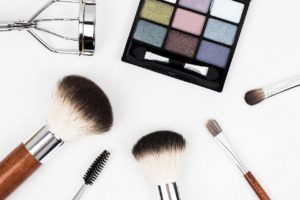As expected (and blogged about previously here), a NY federal court dismissed the “Clean at Sephora” class action complaint, concluding that plaintiff Lindsay Finster “failed to plausibly allege that Sephora misled reasonable consumers when it marketed and sold its ‘Clean at Sephora’ cosmetics,” or that Sephora “made any explicit or implied promises that its ‘Clean at Sephora’ cosmetics were all-natural and free of any potentially harmful ingredients.”
In his fourteen-page opinion, issued today, Judge David Hurd of the U.S. District Court for the Northern District of New York dismissed Finster’s NY GBL §§ 349 and 350 false advertising claims:
Finster’s allegations fall short of the objective standard imposed on GBL §§ 349 and 350 claims. Plaintiff’s complaint leaves the Court guessing as to how a reasonable consumer could mistake the “Clean at Sephora” labeling and/or marketing to reasonably believe that the cosmetics contain no synthetic or harmful ingredients whatsoever. Plaintiff cites to advertising from defendant which states: “consumers who see the Clean seal can be assured that the product is formulated without specific ingredients that are known or suspected to be potentially harmful to human health and/or the environment.” …. Yet, nowhere on the label or in the marketing materials plaintiff cites does defendant make any claim that the products are free of all synthetic or harmful ingredients.
The court also rejected Finster’s breach of warranty claims under the New York Uniform Commercial Code (“UCC”) and Magnuson Moss Warranty Act (“MMWA”) where Finster “cannot point to an express or implicit fact or promise by Sephora that its ‘Clean at Sephora’ cosmetics were free of all synthetic or harmful ingredients.”
The court dismissed Finster’s remaining claims for fraud as insufficiently pleaded because Finster failed to identify an intentionally false material statement, and claim for unjust enrichment .
The court will allow Finster to file an amended complaint on or before March 2029, 2024.
Takeaways
Given Finster’s emphasis on the delta between what the retailer expressly communicated versus what the consumer perceived, it remains to be seen what, if any impact, today’s decision will have on the bigger debate over the meaning of clean beauty. Nevertheless, the decision serves as a reminder that there are competing understandings of clean beauty in today’s cosmetics industry, and that it is important for brands to be transparent about how they are applying the term.

